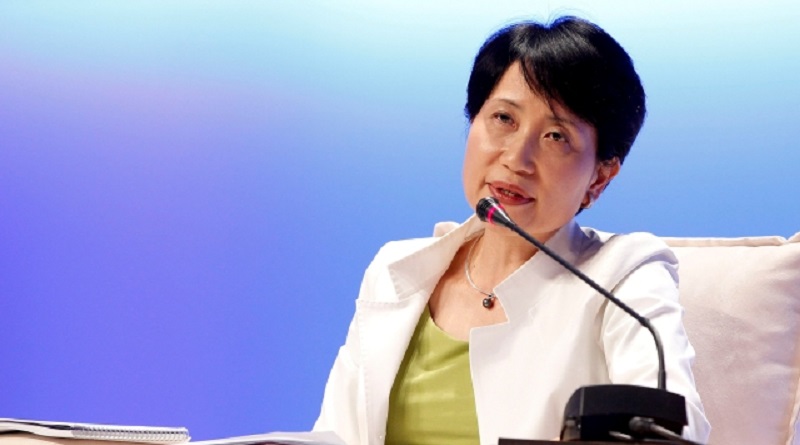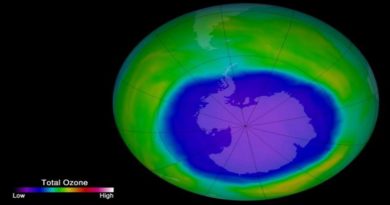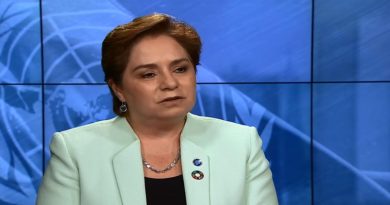If Paris was about agreement, then Marrakech must be about action- GEF boss
The entry into force of the Paris Climate Change Agreement is a turning point in the international community’s battle to combat the threat of climate change. It is a clear political signal that countries are committed to decisive global action to limit global warming well below 2°C and as close to 1.5°C as possible to prevent devastating climate impacts.
But even with this critical milestone behind us, the work towards a low-carbon, climate resilient future is only just beginning.
2016 is shaping up to be the hottest year on record. Today, millions of people around the globe are forced to live with higher temperatures and extreme weather events such as droughts, heat waves, floods and storm surges, putting food and water security at risk, and threatening agricultural supply chains and many coastal cities.
These impacts and risks highlight the need to deliver on Paris. More fundamentally, they highlight that we must not only meet the Paris targets, but exceed them.
Welcoming the early entry into force of the Paris agreement, Naoko Ishii, CEO and Chairperson of the Global Environment Facility (GEF), said: “This is a moment for celebration, but also to recognize the challenges in front of us. Despite recent progress in tackling climate change, transformative shifts, not merely incremental advances, will be necessary to build a sustainable human relationship with the climate system and other global commons. If Paris was about agreement, then Marrakech must be about action,†Ishii said.
The Moroccan city of Marrakech is hosting the 22nd session of the Conference of the Parties (COP 22) to the UNFCCC from November 7 to 18, 2016. The central focus of the negotiations will be placed on enhancing ambition, promoting implementation and providing support for the global response to the threat of climate change.
Marrakesh needs to continue the momentum from Paris and keep the sense of urgency and ambition alive. It should accelerate action on national climate plans, or NDCs, and progress work on mitigation, adaptation, financing, transparency, technology and integrated approaches with multi-sector partnerships from all sectors of society.
As a financial mechanism for the UN Framework Convention on Climate Change (UNFCCC), the GEF was called upon to serve the Paris Agreement alongside the Special Climate Change Fund (SCCF), Least Developed Countries Fund (LDCF), and the Green Climate Fund (GCF), and to help the countries deliver on their climate change commitments.
In particular, the GEF was requested to support developing countries in formulating policies, strategies, and programs and projects to implement activities that advance priorities identified in their respective climate action plans in a manner consistent with the operational policies and guidelines of the GEF.
Achievements in climate change mitigation and adaptation
Since Paris, the GEF has been helping countries to implement climate actions on the ground.
The GEF has been funding projects that deal with climate change mitigation since its establishment in 1991. As of June 30, 2016, the GEF has funded 836 mitigation projects with more than $5.2 billion GEF funding in more than 165 countries.
The many mitigation strategies supported by the GEF include retrofitting buildings to make them more energy efficient; adopting renewable energy sources like solar, wind and small hydro; helping cities develop more sustainable transport such as bus rapid transit, electric vehicles and biofuels; and promoting more sustainable uses of land and forests.
They also include projects with multiple mitigation objectives that have direct impact on GHG emission reductions and preserve the global commons.
Since 2001, the GEF has provided over US$1.3 billion in grant financing and mobilized US$7 billion from other sources for 320 adaptation projects in 129 countries, including all Least Developed Countries (LDCs) and 33 small island developing states.
These projects are expected to directly reduce the vulnerability of at least 17 million people.
Transparency within the Paris Agreement
Many developing countries still lack the necessary capacity to effectively monitor and report their progress vis-Ã -vis national greenhouse gas emission reduction, and track progress made in the implementation of their Nationally Determined Contributions under the Paris Agreement.
Following a decision last year at COP 21, the GEF has established the Capacity-building Initiative for Transparency (CBIT), aiming to strengthen the institutional and technical capacities of developing countries to meet the enhanced transparency requirements in the Paris Agreement. It will be officially launched in Marrakesh.
GEF support to greening Morocco
The GEF and Morocco have a long history of combating climate change.
The GEF’s support for a solar technology project in Morocco, begun in 1999, helped accelerate the adoption of solar technology across the globe. With government and private sector funds, and in partnership with the African Development Bank (AfDB), the World Bank, and more recently with the International Finance Corporation (IFC) and with and the Climate Investment Funds (CIFs), over almost two decades the GEF contributed to the replication of hybrid solar thermal power generation technology in Morocco and across the globe.
Morocco is leading the way in moving from commitments to action on climate change. The country’s ambitious low carbon growth objectives (42% of installed capacity will be covered by renewables by 2020) and progress in adaptation actions to manage its vulnerability (especially in agriculture) contributed to the decision to hold COP 22 in Marrakech.
“The solidarity and trust built in Paris must be indicators of the success in Marrakech. COP22 needs to be an action COP. It needs to strengthen tangible solutions and actions whilst maintaining the spirit of Paris,†said Hakima El Haite, Moroccan Minister of Environment and COP22 President at the Bonn climate change meeting in May 2016.
The GEF is committed to assisting Morocco in achieving a low carbon emission and resilient development path, as well as to having a green and productive COP22.




